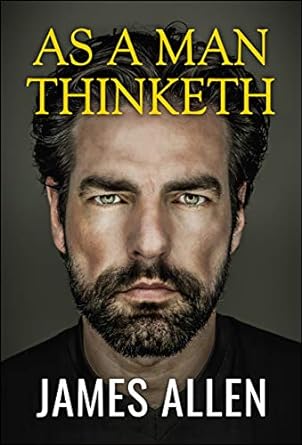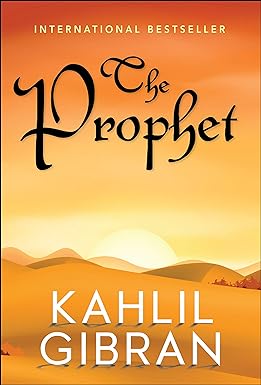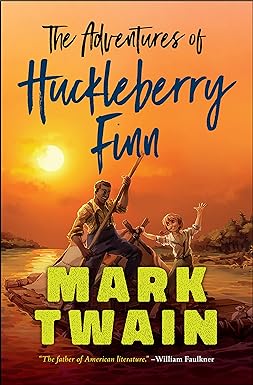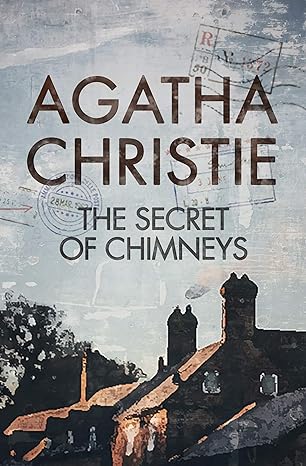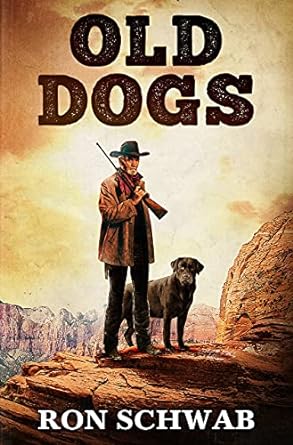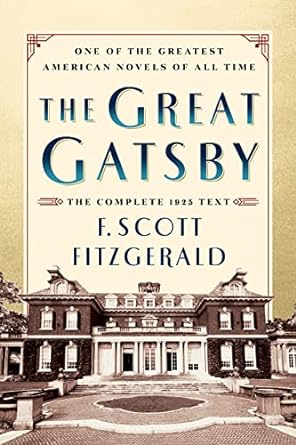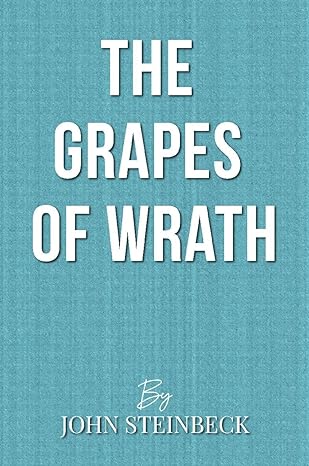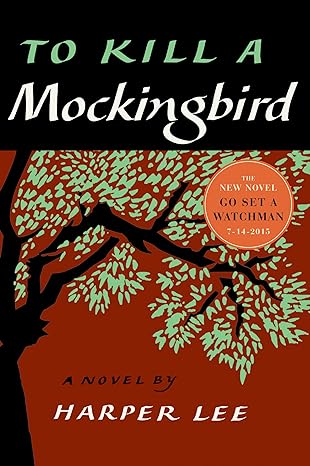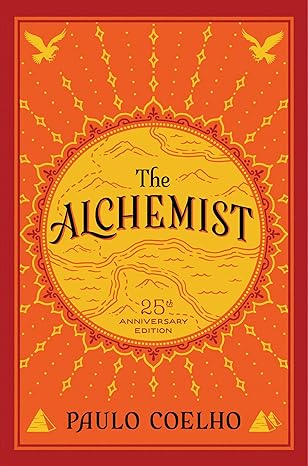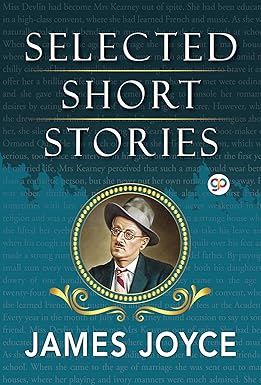
Selected Short Stories of James Joyce
James Joyce was an Irish novelist and poet, considered to be one of the most influential writers in the modernist avant-garde of the early 20th century. Joyce is best known for Ulysses, a landmark work in which the episodes of Homer's Odyssey are paralleled in an array of contrasting literary styles, perhaps most prominent among these the stream of consciousness technique he perfected.
Other major works are the short-story collection Dubliners (1914), and the novel A Portrait of the Artist as a Young Man and Chamber Music, all of which are included.
BEST DEALS
About the Author
James Joyce (2 February 1882 – 13 January 1941) was an Irish novelist and poet, regarded as one of the most influential and important authors of the twentieth century. Joyce's technical innovations in the art of the novel include an extensive use of interior monologue; he used a complex network of symbolic parallels drawn from the mythology, history, and literature, and created a unique language of invented words, puns, and allusions. James Joyce was born in Dublin, on February 2, 1882, as the son of John Stanislaus Joyce, an impoverished gentleman, who had failed in a distillery business and tried all kinds of professions, including politics and tax collecting.
Joyce's mother, Mary Jane Murray, was ten years younger than her husband. She was an accomplished pianist, whose life was dominated by the Roman Catholic Church. In spite of their poverty, the family struggled to maintain a solid middle-class facade. From the age of six, Joyce was educated by Jesuits at Clongowes Wood College, at Clane, and then at Belvedere College in Dublin (1893-97). In 1898 he entered the University College, Dublin. Joyce's first publication was an essay on Ibsen's play 'When We Dead Awaken'.
It appeared in the 'Fortnightly Review' in 1900. At this time he also began writing lyric poems. After graduation in 1902, the twenty-year-old Joyce went to Paris, where he worked as a journalist, teacher and in other occupations under difficult financial conditions. He spent a year in France, returning when a telegram arrived saying his mother was dying. Not long after her death, Joyce was traveling again. He left Dublin in 1904 with Nora Barnacle, a chambermaid who he married in 1931. Joyce published 'Dubliners' in 1914, 'A Portrait of the Artist as a Young Man' in 1916, a play 'Exiles' in 1918 and 'Ulysses' in 1922. In 1907 Joyce had published a collection of poems, 'Chamber Music'. At the outset of the First World War, Joyce moved with his family to Zürich.
In Zürich Joyce started to develop the early chapters of 'Ulysses', which was first published in France because of censorship troubles in the Great Britain and the United States, where the book became legally available only in 1933. In March 1923 Joyce started his second major work, 'Finnegans Wake', suffering at the same time chronic eye troubles caused by glaucoma. The first segment of the novel appeared in Ford Madox Ford's transatlantic review in April 1924, as part of what Joyce called Work in Progress. The final version was published in 1939.
Read Sample
1. A Mother
Mr Holohan, assistant secretary of the Eire Abu Society, had been walking up and down Dublin for nearly a month, with his hands and pockets full of dirty pieces of paper, arranging about the series of concerts. He had a game leg, and for this his friends called him Hoppy Holohan. He walked up and down constantly, stood by the hour at street corners arguing the point, and made notes; but in the end it was Mrs Kearney who arranged everything.
Miss Devlin had become Mrs Kearney out of spite. She had been educated in a high-class convent, where she had learned French and music. As she was naturally pale and unbending in manner she made few friends at school. When she came to the age of marriage she was sent out to many houses, where her playing and ivory manners were much admired. She sat amid the chilly circle of her accomplishments, waiting for some suitor to brave it and offer her a brilliant life. But the young men whom she met were ordinary and she gave them no encouragement, trying to console her romantic desires by eating a great deal of Turkish Delight in secret. However, when she drew near the limit and her friends began to loosen their tongues about her, she silenced them by marrying Mr Kearney, who was a boot-maker on Ormond Quay.
He was much older than she. His conversation, which was serious, took place at intervals in his great brown beard. After the first year of married life, Mrs Kearney perceived that such a man would wear better than a romantic person, but she never put her own romantic ideas away. He was sober, thrifty and pious; he went to the altar every first Friday, sometimes with her, oftener by himself. But she never weakened in her religion and was a good wife to him. At some party in a strange house when she lifted her eyebrow ever so slightly he stood up to take his leave and, when his cough troubled him, she put the eiderdown quilt over his feet and made a strong rum punch. For his part, he was a model father. By paying a small sum every week into a society, he ensured for both his daughters a dowry of one hundred pounds each when they came to the age of twenty-four. He sent the older daughter, Kathleen, to a good convent, where she learned French and music, and afterward paid her fees at the Academy. Every year in the month of July Mrs Kearney found occasion to say to some friend:
‘My good man is packing us off to Skerries for a few weeks.’
If it was not Skerries, it was Howth or Greystones.
When the Irish Revival began to be appreciable, Mrs Kearney determined to take advantage of her daughter’s name brought an Irish teacher to house. Kathleen and her sister Irish sent picture postcards to their friends and these friends sent back other Irish picture postcards. On special Sundays, when Mr Kearney went with his family to the pro-cathedral, a little crowd of people would assemble after mass at the corner of Cathedral Street. They were all friends of the Kearney—musical friends or Nationalist friends, and, when they had played every little counter of gossip, they shook hands with one another, all together laughing at the crossing of so may hands, and said good-bye to one another in Irish. Soon the name of Miss Kathleen Kearney began to be heard often on people’s lips. People said that she was very clever at music and a very nice girl and, moreover, that she was a believer in the language movement. Mrs Kearney was well content at this. Therefore she was not surprised when one day Mr Holohan came to her and proposed that her daughter should be the accompanist at a series of four grand concerts which his Society was going to give in the Antient Concert Rooms. She brought him into the drawing-room, made him sit down and brought out the decanter and the silver biscuit-barrel. She entered heart and soul into the detail of the enterprise, advised and dissuaded: and finally a contract was drawn up by which Kathleen was to receive eight guineas for her services as accompanist at the four grand concerts.
As Mr Holohan was a novice in such delicate matters as the wording of bills and the disposing of items for a programme, Mrs Kearney helped him. She had tact. She knew what artistes should go into capitals and what artistes should go into small type. She knew that the first tenor would not like to come on after Mr Meade’s comic turn. To keep the audience continually diverted, she slipped the doubtful items in between the old favourites. Mr Holohan called to see her every day to have her advice on some point. She was invariably friendly and advising— homely, in fact. She pushed the decanter towards him, saying:
‘Now help yourself, Mr Holohan!’
And while he was helping himself she said:
‘Don’t be afraid! Don’t be afraid of it!’
Everything went on smoothly. Mrs Kearney bought some lovely blush-pink charmeuse in Brown Thomas’s to let into the front of Kathleen’s dress. It cost a pretty penny, but there are occasions when a little expense is justifiable. She took a dozen of two-shilling tickets for the final concert and sent them to those friends who could not be trusted to come otherwise. She forgot nothing, and, thanks to her, everything that was to be done was done.
The concerts were to be on Wednesday, Thursday, Friday and Saturday. When Mrs Kearney arrived with her daughter at the Antient Concert Rooms on Wednesday night, she did not like the look of things. A few young men, wearing bright blue badges in their coats, stood idle in the vestibule; none of them wore evening dress. She passed by with her daughter and a quick glance through the open door of the hall showed her the cause of the stewards’ idleness. At first she wondered had she mistaken the hour. No, it was twenty minutes to eight.
In the dressing-room behind the stage she was introduced to the secretary of the Society, Mr Fitzpatrick. She smiled and shook his hand. He was a little man, with a white, vacant face. She noticed that he wore his soft brown hat carelessly on the side of his head and that his accent was flat. He held a programme in his hand, and, while he was talking to her, he chewed one end of it into a moist pulp. He seemed to bear disappointments lightly. Mr Holohan came into the dressing-room every few minutes with reports from the box-office. The artistes talked among themselves nervously, glanced from time to time at the mirror and rolled and unrolled their music. When it was nearly half-past eight, the few people in the hall began to express their desire to be entertained. Mr Fitzpatrick came in, smiled vacantly at the room, and said:
‘Well, now, ladies and gentlemen. I suppose we’d better open the ball.’
Mrs Kearney rewarded his very flat final syllable with a quick stare of contempt, and then said to her daughter encouragingly:
‘Are you ready, dear?”
When she had an opportunity, she called Mr Holohan aside and asked him to tell her what it meant. Mr Holohan did not know what it meant. He said that the committee had made a mistake in arranging for four concerts: four was too many.
‘And the artistes!’ said Mrs Kearney ‘Of course they are doing their best, but really they are not good.’
Mr Holohan admitted that the artistes were no good, but the committee, he said, had decided to let the first three concerts go as they pleased and reserve all the talent for Saturday night. Mrs Kearney said nothing, but, as the mediocre items followed one another on the platform and the few people in the hall grew fewer and fewer, she began to regret that she had put herself to any expense for such a concert. There was something she didn’t like in the look of things, and Mr Fitzpatrick’s vacant smile irritated her very much. However, she said nothing and waited to see how it would end. The concert expired shortly before ten, and everyone went home quickly.
The concert on Thursday night was better attended, but Mrs Kearney saw at once that the house was filled with paper. The audience behaved indecorously, as if the concert were an informal dress rehearsal. Mr Fitzpatrick seemed to enjoy himself; he was quite unconscious that Mrs Kearney was taking angry note of his conduct. He stood at the edge of the screen, from time to time jutting out his head and exchanging a laugh with two friends in the corner of the balcony. In the course of the evening, Mrs Kearney learned that the Friday concert was to be abandoned and that the committee was going to move heaven and earth to secure a bumper house on Saturday night. When she heard this, she sought out Mr Holohan. She buttonholed him as he was limping out quickly with a glass of lemonade for a young lady and asked him was it true. Yes, it was true.
‘But, of course, that doesn’t alter the contract,’ she said. ‘The contract was for four concerts.’
Mr Holohan seemed to be in a hurry; he advised her to speak to Mr Fitzpatrick. Mrs Kearney was now beginning to be alarmed. She called Mr Fitzpatrick away from his screen and told him that her daughter had signed for four concerts and that, of course, according to the terms of the contract, she should receive the sum originally stipulated for, whether the society gave the four concerts or not. Mr Fitzpatrick, who did not catch the point at issue very quickly, seemed unable to resolve the difficulty and said that he would bring the matter before the committee. Mrs Kearney’s anger began to flutter in her cheek and she had all she could do to keep from asking:
‘And who is the Cometty, pray?’
But she knew that it would not be ladylike to do that: so she was silent.
Little boys were sent out into the principal streets of Dublin early on Friday morning with bundles of handbills. Special puffs appeared in all the evening papers, reminding the music-loving public of the treat which was in store for it on the following evening. Mrs Kearney was somewhat reassured, but she thought well to tell her husband part of her suspicions. He listened carefully and said that perhaps it would be better if he went with her on Saturday night. She agreed. She respected her husband in the same way as she respected the General Post Office, as something large, secure and fixed; and though she knew the small number of his talents, she appreciated his abstract value as a male. She was glad that he had suggested coming with her. She thought her plans over.
The night of the grand concert came. Mrs Kearney, with her husband and daughter, arrived at the Antient Concert Rooms three-quarters of an hour before the time at which the concert was to begin. By ill luck it was a rainy evening. Mrs Kearney placed her daughter’s clothes and music in charge of her husband and went all over the building looking for Mr Holohan or Mr Fitzpatrick. She could find neither. She asked the stewards was any member of the committee in the hall and, after a great deal of trouble, a steward brought out a little woman named Miss Beirne, to whom Mrs Kearney explained that she wanted to see one of the secretaries. Miss Beirne expected them any minute and asked could she do anything. Mrs Kearney looked searchingly at the oldish face which was screwed into an expression of trustfulness and enthusiasm and answered:
‘No, thank you!’
The little woman hoped they would have a good house. She looked out at the rain until the melancholy of the wet street effaced all the trustfulness and enthusiasm from her twisted features. Then she gave a little sigh and said:
‘Ah, well! We did our best, the dear knows.’
Mrs Kearney had to go back to the dressing-room.
The artistes were arriving. The bass and the second tenor had already come. The bass, Mr Duggan, was a slender young man with a scattered black moustache. He was the son of a hall porter in an office in the city and, as a boy, he had sung prolonged bass notes in the resounding hall. From this humble state he had raised himself until he had become a first-rate artiste. He had appeared in grand opera. One night, when an operatic artiste had fallen ill, he had undertaken the part of the king in the opera of Maritana at the Queen’s Theatre. He sang his music with great feeling and volume and was warmly welcomed by the gallery; but, unfortunately, he marred the good impression by wiping his nose in his gloved hand once or twice out of thoughtlessness. He was unassuming and spoke little. He said yous so softly that it passed unnoticed and he never drank anything stronger than milk for his voice’s sake. Mr Bell, the second tenor, was a fair-haired little man who competed every year for prizes at the Feis Ceoil. On his fourth trial he had been awarded a bronze medal. He was extremely nervous and extremely jealous of other tenors and he covered his nervous jealousy with an ebullient friendliness. It was his humour to have people know what an ordeal a concert was to him. Therefore when he saw Mr Duggan, he went over to him and asked:
‘Are you in it too?’
‘Yes,’ said Mr Duggan.
Mr Bell laughed at his fellow-sufferer, held out his hand and said:
‘Shake!’
Mrs Kearney passed by these two young men and went to the edge of the screen to view the house. The seats were being filled up rapidly and a pleasant noise circulated in the auditorium. She came back and spoke to her husband privately. Their conversation was evidently about Kathleen, for they both glanced at her often as she stood chatting to one of her Nationalist friends, Miss Healy, the contralto. An unknown solitary woman with a pale face walked through the room. The women followed with keen eyes the faded blue dress which was stretched upon a meagre body. Someone said that she was Madam Glynn, the soprano.
‘I wonder where did they dig her up,’ said Kathleen to Miss Healy. ‘I’m sure I never heard of her.’
Miss Healy had to smile. Mr Holohan limped into the dressing-room at that moment and the two young ladies asked him who was the unknown woman. Mr Holohan said that she was Madam Glynn from London. Madam Glynn took her stand in a corner of the room, holding a roll of music stiffly before her and from time to time changing the direction of her startled gaze. The shadow took her faded dress into shelter but fell revengefully into the little cup behind her collarbone. The noise of the hall became more audible. The first tenor and the baritone arrived together. They were both well dressed, stout and complacent, and they brought a breath of opulence among the company.
Mrs Kearney brought her daughter over to them, and talked to them amiably. She wanted to be on good terms with them but, while she strove to be polite, her eyes followed Mr Holohan in his limping and devious courses. As soon as she could, she excused herself and went out after him.
‘Mr Holohan, I want to speak to you for a moment,’ she said.
They went down to a discreet part of the corridor. Mrs Kearney asked him when was her daughter going to be paid. Mr Holohan said that Mr Fitzpatrick had charge of that. Mrs Kearney said that she didn’t know anything about Mr Fitzpatrick. Her daughter had signed a contract for eight guineas and she would have to be paid. Mr Holohan said that it wasn’t his business.
‘Why isn’t it your business?’ asked Mrs Kearney. ‘Didn’t you yourself bring her the contract? Anyway, if it’s not your business, it’s my business, and I mean to see to it.’
‘You’d better speak to Mr Fitzpatrick,’ said Mr Holohan distinctly.
‘I don’t know anything about Mr Fitzpatrick,’ repeated Mrs Kearney. ‘I have my contract, and I intend to see that it is carried out.’
When she came back to the dressing-room her cheeks were slightly suffused. The room was lively. Two men in outdoor dress had taken possession of the fireplace and were chatting familiarly with Miss Healy and the baritone. They were the Freeman man and Mr O’Madden Burke. The Freeman man had come in to say that he could not wait for the concert as he had to report the lecture which an American priest was giving in the Mansion House. He said they were to leave the report for him at the Freeman office and he would see that it went in. He was a grey-haired man with a plausible voice and careful manners. He held an extinguished cigar in his hand and the aroma of cigar smoke floated near him. He had not intended to stay a moment, because concerts and artistes bored him considerably, but he remained leaning against the mantelpiece. Miss Healy stood in front of him, talking and laughing. He was old enough to suspect one reason for her politeness, but young enough in spirit to turn the moment to account. The warmth, fragrance and colour of her body appealed to his senses. He was pleasantly conscious that the bosom which he saw rise and fall slowly beneath him rose and fell at that moment for him, that the laughter and fragrance and wilful glances were his tribute. When he could stay no longer, he took leave of her regretfully.
‘O’Madden Burke will write the notice,’ he explained to Mr Holohan, ‘and I’ll see it in.’
“Thank you very much, Mr Hendrick,’ said Mr Holohan. ‘You’ll see it in, I know. Now, won’t you have a little something before you go?’
‘I don’t mind,’ said Mr Hendrick.
The two men went along some tortuous passages and up a dark staircase and came to a secluded room where one of the stewards was uncorking bottles for a few gentlemen. One of these gentlemen was Mr O’Madden Burke, who had found out the room by instinct. He was a suave, elderly man who balanced his imposing body, when at rest, upon a large silk umbrella. His magniloquent western name was the moral umbrella upon which he balanced the fine problem of his finances. He was widely respected.
While Mr Holohan was entertaining the Freeman man, Mrs Kearney was speaking so animatedly to her husband that he had to ask her to lower her voice. The conversation of the others in the dressing-room had become strained. Mr Bell, the first item, stood ready with his music but the accompanist made no sign. Evidently something was wrong. Mr. Keaney looked straight before him, stroking his beard, while Mrs Kearney spoke into Kathleen’s ear with subdued emphasis.
From the hall came sounds of encouragement, clapping and stamping of feet. The first tenor and the baritone and Miss Healy stood together, waiting tranquilly, but Mr Bell’s nerves were greatly agitated because he was afraid the audience would think that he had come late.
Mr Holohan and Mr O’Madden Burke came into the room. In a moment Mr Holohan perceived the hush. He went over to Mrs Kearney and spoke with her earnestly. While they were speaking the noise in the hall grew louder. Mr Holohan became very red and excited. He spoke volubly, but Mrs Kearney said curtly at intervals:
‘She won’t go on. She must get her eight guineas.’
Mr Holohan pointed desperately towards the hall where the audience was clapping and stamping. He appealed to Mr Kearney and to Kathleen. But Mr Kearney continued to stroke his beard and Kathleen looked down, moving the point of her new shoe: it was not her fault. Mrs Kearney repeated:
‘She won’t go on without her money.’
After a swift struggle of tongues Mr Holohan hobbled out in haste. The room was silent. When the strain of the silence had become somewhat painful, Miss Healy said to the baritone:
‘Have you seen Mrs Pat Campbell this week?’
The baritone had not seen her but he had been told that she was very fine. The conversation went no further. The first tenor bent his head and began to count the links of the gold chain which was extended across his waist, smiling and humming random notes to observe the effect on the frontal sinus. From time to time everyone glanced at Mrs Kearney.
The noise in the auditoriun had risen to a clamour when Mr Fitzpatrick burst into the room, followed by Mr Holohan, who was panting. The clapping and stamping in the hall were punctuated by whistling. Mr Fitzpatrick held a few bank notes in his hand. He counted out four into Mrs Kearney’s hand and said she would get the other half at the interval. Mrs Kearney said:
‘This is four shillings short.’
But Kathleen gathered in her skirt and said: ‘Now, Mr Bell,’ to the first item, who was shaking like an aspen. The singer and the accompanist went out together. The noise in the hall died away. There was a pause of a few seconds, and then the piano was heard.
The first part of the concert was very successful except for Madam Glynn’s item. The poor lady sang Killarney in a bodiless gasping voice, with all the old-fashioned mannerisms of intonation and pronunciation which she believed lent elegance to her singing. She looked as if she had been resurrected from an old stage-wardrobe and the cheaper parts of the hall made fun of her high wailing notes. The first tenor and the contralto, however, brought down the house. Kathleen played a selection of Irish airs which was generously applauded. The first part closed with a stirring patriotic recitation delivered by a young lady who arranged amateur theatricals. It was deservedly applauded, and, when it was ended, the men went out for the interval, content.
‘All this time the dressing-room was a hive of excitement. In one corner were Mr Holohan, Mr Fitzpatrick, Miss Beirne, two of the stewards, the baritone, the bass, and Mr O’Madden Burke. Mr O’Madden Burke said it was the most scandalous exhibition he had ever witnessed. Miss Kathleen Kearney’s musical career was ended in Dublin after that, he said. The baritone was asked what did he think of Mrs Kearney’s conduct. He did not like to say anything. He had been paid his money and wished to be at peace with men. However, he said that Mrs Kearney might have taken the artistes into consideration. The stewards and the secretaries debated hotly as to what should be done when the interval came.
‘I agree with Miss Beirne,’ said Mr O’ Madden Burke. ‘Pay her nothing.’
In another corner of the room were Mrs Kearney and her husband, Mr Bell, Miss Healy and the young lady who had to recite the patriotic piece. Mrs Kearney said that the committee had treated her scandalously. She had spared neither trouble nor expense and this was how she was repaid.
They thought they had only a girl to deal with and that, therefore, they could ride roughshod over her. But she would show them their mistake. They wouldn’t have dared to have treated her like that if she had been a man. But she would see that her daughter got her rights: she wouldn’t be fooled. If they didn’t pay her to the last farthing she would make Dublin ring. Of course she was sorry for the sake of the artistes. But what else could she do? She appealed to the second tenor, who said he thought she had not been well treated. Then she appealed to Miss Healy. Miss Healy wanted to join the other group, but she did not like to do so because she was a great friend of Kathleen’s and the Kearneys had often invited her to their house.
As soon as the first part was ended Mr Fitzpatrick and Mr Holohan went over to Mrs Kearney and told her that the other four guineas would be paid after the committee meeting on the following Tuesday and that, in case her daughter did not play for the second part, the committee would consider the contract broken and would pay nothing.
‘I haven’t seen any committee,’ said Mrs Kearney angrily. ‘My daughter has her contract. She will get four pounds eight into her hand or a foot she won’t put on that platform.’
‘I’m surprised at you, Mrs Kearney,’ said Mr Holohan. ‘I never thought you would treat us this way.’
‘And what way did you treat me?’ asked Mrs Kearney. Her face was inundated with an angry colour and she looked as if she would attack someone with her hands.
‘I’m asking for my rights,’ she said.
‘You might have some sense of decency,’ said Mr Holohan.
‘Might I, indeed?...And when I ask when my daughter is going to be paid, I can’t get a civil answer.’
She tossed her head and assumed a haughty voice:
‘You must speak to the secretary. It’s not my business. ‘I’m a great fellow fol-the-diddle-I do.’
‘I thought you were a lady,’ said Mr Holohan, walking away from her abruptly.
After that Mrs Kearney’s conduct was condemned on all hands: everyone approved of what the committee had done. She stood at the door, haggard with rage, arguing with her husband and daughter, gesticulating with them. She waited until it was time for the second part to begin in the hope that the secretaries would approach her. But Miss Healy had kindly consented to play one or two accompaniments. Mrs Kearney had to stand aside to allow the baritone and his accompanist to pass up to the platform. She stood still for an instant like an angry stone image and, when the first notes of the song struck her ear, she caught up her daughter’s cloak and said to her husband:
‘Get a cab!’
He went out at once. Mrs Kearney wrapped the cloak round her daughter and followed him. As she passed through the doorway, she stopped and glared into Mr Holohan’s face. ‘I’m not done with you yet,’ she said.
‘But I’m done with you,’ said Mr Holohan.
Kathleen followed her mother meekly. Mr Holohan began to pace up and down the room in order to cool himself, for he felt his skin on fire.
“That’s a nice lady!’ he said. ‘O, she’s a nice lady!’
‘You did the proper thing, Holohan,’ said Mr O’Madden Burke, poised upon his umbrella in approval.
2. The Sisters
There was no hope for him this time; it was the third stroke. Night after night I had passed the house (it was vacation time) and studied the lighted square of window: and night after night I had found it lighted in the same way, faintly and evenly. If he was dead, I thought, I would see the reflection of candles on the darkened blind, for I knew that two candles must be set at the head of a corpse. He had often said to me: ‘I am not long for this world,’ and I had thought his words idle. Now I knew they were true. Every night as I gazed up at the window I said softly to myself the word paralysis. It had always sounded strange in my ears, like the word gnomon in the Euclid and the word simony in the Catechism. But now it sounded to me like the name of some maleficent and sinful being. It filled me with fear, and yet I longed to be nearer to it and to look upon its deadly work.
Old Cotter was sitting at the fire, smoking, when I came downstairs to supper. While my aunt was ladling out my stir-about, he said, as if returning to some former remark of his:
‘No, I wouldn’t say he was exactly...but there was something queer... there was something uncanny about him. I’ll tell you my opinion ...’
He began to puff at his pipe, no doubt arranging his opinion in his mind. Tiresome old fool! When we knew him first he used to be rather interesting, talking of faints and worms; but I soon grew tired of him and his endless stories about the distillery.
‘I have my own theory about it,’ he said. ‘I think it was one of those...peculiar cases...But it’s hard to say...’
He began to puff again at his pipe without giving us his theory. My uncle saw me staring and said to me:
‘Well, so your old friend is gone, you’ll be sorry to hear.’
‘Who?’ said I.
‘Father Flynn.’
‘Is he dead?’
‘Mr Cotter here has just told us. He was passing by the house.’
I knew that I was under observation, so I continued eating as if the news had not interested me. My uncle explained to old Cotter.
‘The youngster and he were great friends. The old chap taught him a great deal, mind you; and they say he had a great wish for him.’
‘God have mercy on his soul,’ said my aunt piously.
Old Cotter looked at me for a while. I felt that his little beady black eyes were examining me, but I would not satisfy him by looking up from my plate. He returned to his pipe and finally spat rudely into the grate.
‘I wouldn’t like children of mine,’ he said, ‘to have too much to say to a man like that.’
‘How do you mean, Mr Cotter?’ asked my aunt.
‘What I mean is,’ said old Cotter, ‘it’s bad for children. My idea is: let a young lad run about and play with young lads of his own age and not be...Am I right, Jack?’
‘That’s my principle, too,’ said my uncle. ‘Let him learn to box his corner. That’s what I’m always saying to that Rosicrucian there: take exercise. Why, when I was a nipper, every morning of my life I had a cold bath, winter and summer. And that’s what stands to me now. Education is all very fine and large...Mr Cotter might take a pick of that leg of mutton,’ he added to my aunt.
‘No, no, not for me,’ said old Cotter.
My aunt brought the dish from the safe and put it on the table.
‘But why do you think it’s not good for children, Mr Cotter?’ she asked.
‘It’s bad for children,’ said old Cotter, ‘because their minds are so impressionable. When children see things like that, you know, it has an effect...’
I crammed my mouth with stir about for fear I might give utterance to my anger. Tiresome old red-nosed imbecile!
It was late when I fell asleep. Though I was angry with old Cotter for alluding to me as a child, I puzzled my head to extract meaning from his unfinished sentences. In the dark of my room I imagined that I saw again the heavy grey face of the paralytic. I drew the blankets over my head and tried to think of Christmas. But the grey face still followed me. It murmured, and I understood that it desired to confess something. I felt my soul receding into some pleasant and vicious region, and there again I found it waiting for me. It began to confess to me in a murmuring voice and I wondered why it smiled continually and why the lips were so moist with spittle. But then I remembered that it had died of paralysis and I felt that I too was smiling feebly, as if to absolve the simoniac of his sin.
The next morning after breakfast I went down to look at the little house in Great Britain Street. It was an unassuming shop, registered under the vague name of Drapery. The drapery consisted mainly of children’s bootees and umbrellas, and on ordinary days a notice used to hang in the window, saying: Umbrellas Re-covered. No notice was visible now, for the shutters were up. A crape bouquet was tied to the door-knocker with ribbon. Two poor women and a telegram-boy were reading the card pinned on the crape. I also approached and read:
July 1st, 1895
The Rev. James Flynn (formerly of St. Catherine’s Church,
Meath Street), aged sixty-five years.
R.I.P.
The reading of the card persuaded me that he was dead and I was disturbed to find myself at check. Had he not been dead, I would have gone into the little dark room behind the shop to find him sitting in his arm-chair by the fire, nearly smothered in his great coat. Perhaps my aunt would have given me a packet of High Toast for him, and this present would have roused him from his stupefied doze. It was always I who emptied the packet into his black snuff-box, for his hands trembled too much to allow him to do this without spilling half the snuff about the floor. Even as he raised his large trembling hand to his nose, little clouds of smoke dribbled through his fingers over the front of his coat. It may have been these constant showers of snuff which gave his ancient priestly garments their green, faded look, for the red handkerchief, blackened, as it always was with the snuff-stains of a week, with which he tried to brush away the fallen grains, was quite inefficacious.
I wished to go in and look at him, but I had not the courage to knock. I walked away slowly along the sunny side of the street, reading all the theatrical advertisements in the shop-windows as I went. I found it strange that neither I nor the day seemed in a mourning mood and I felt even annoyed at discovering in myself a sensation of freedom as if I had been freed from something by his death. I wondered at this for, as my uncle had said the night before, he had taught me a great deal. He had studied in the Irish college in Rome and he had taught me to pronounce Latin properly. He had told me stories about catacombs and about Napoleon Bonaparte, and he had explained to me the meaning of the different ceremonies of the Mass and of the different vestments worn by the priest. Sometimes he had amused himself by putting difficult questions to me, asking me what one should do in certain circumstances or whether such and such sins were mortal or venial or only imperfections. His questions showed me how complex and mysterious were certain institutions of the Church which I had always regarded as the simplest acts. The duties of the priest towards the Eucharist and towards the secrecy of the confessional seemed so grave to me that I wondered how anybody had ever found in himself the courage to undertake them; and I was not surprised when he told me that the fathers of the Church had written books as thick as the Post Office Directory and as closely printed as law notices in the newspaper, elucidating all these intricate questions. Often when I thought of this, I could make no answer or only a very foolish and halting one, upon which he used to smile and nod his head twice or thrice. Sometimes he used to put me through the responses of the Mass, which he had made me learn by heart; and, as I pattered, he used to smile pensively and nod his head, now and then pushing huge pinches of snuff up each nostril alternately. When he smiled, he used to uncover his big discoloured teeth and let his tongue lie upon his lower lip—a habit which had made me feel uneasy in the beginning of our acquaintance before I knew him well.
As I walked along in the sun, I remembered old Cotter’s words and tried to remember what had happened afterwards in the dream. I remembered that I had noticed long velvet curtains and a swinging lamp of antique fashion. I felt that I had been very far away, in some land where the customs were strange—in Persia, I thought...But I could not remember the end of the dream.
In the evening my aunt took me with her to visit the house of mourning. It was after sunset, but the windowpanes of the houses that looked to the west reflected the tawny gold of a great bank of clouds. Nannie received us in the hall, and, as it would have been unseemly to have shouted at her, my aunt shook hands with her for all. The old woman pointed upwards interrogatively and, on my aunt’s nodding, proceeded to toil up the narrow staircase before us, her bowed head being scarcely above the level of the banister-rail. At the first landing she stopped and beckoned us forward encouragingly towards the open door of the dead-room. My aunt went in and the old woman, seeing that I hesitated to enter, began to beckon to me again repeatedly with her hand.
I went in on tiptoe. The room through the lace end of the blind was suffused with dusky golden light amid which the candles looked like pale thin flames. He had been coffined. Nannie gave the lead and we three knelt down at the foot of the bed. I pretended to pray but I could not gather my thoughts because the old woman’s mutterings distracted me. I noticed how clumsily her skirt was hooked at the back and how the heels of her cloth boots were trodden down, all to one side. The fancy came to me that the old priest was smiling as he lay there in his coffin.
But no. When we rose and went up to the head of the bed I saw that he was not smiling. There he lay, solemn and copious, vested as for the altar, his large hands loosely retaining a chalice. His face was very truculent, grey and massive, with black cavernous nostrils and circled by a scanty white fur. There was a heavy odour in the room—the flowers.
We crossed ourselves and came away. In the little room downstairs we found Eliza seated in his arm-chair in state. I groped my way towards my usual chair in the corner while Nannie went to the sideboard and brought out a decanter of sherry and some wine-glasses. She set these on the table and invited us to take a little glass of wine. Then, at her sister’s bidding, she filled out the sherry into the glasses and passed them to us. She pressed me to take some cream crackers also, but I declined because I thought I would make too much noise eating them. She seemed to be somewhat disappointed at my refusal and went over quietly to the sofa, where she sat down behind her sister. No one spoke: we all gazed at the empty fireplace.
My aunt waited until Eliza sighed and then said:
‘Ah, well, he’s gone to a better world.’
Eliza sighed again and bowed her head in assent. My aunt fingered the stem of her wine-glass before sipping a little.
‘Did he...peacefully?’ she asked.
‘Oh, quite peacefully, ma’am,’ said Eliza. ‘You couldn’t tell when the breath went out of him. He had a beautiful death, God be praised.’
‘And everything...?’
‘Father O’Rourke was in with him on Tuesday and anointed him and prepared him and all.’
‘He knew then?’
‘He was quite resigned.’
‘He looks quite resigned,’ said my aunt.
‘That’s what the woman we had in to wash him said. She said he just looked as if he was asleep; he looked that peaceful and resigned. No one would think he’d make such a beautiful corpse.’
‘Yes, indeed,’ said my aunt.
She sipped a little more from her glass and said:
‘Well, Miss Flynn, at any rate it must be a great comfort for you to know that you did all you could for him. You were both very kind to him, I must say.’
Eliza smoothed her dress over her knees.
‘Ah, poor James!’ she said. ‘God knows we done all we could, as poor as we are—we wouldn’t see him want anything while he was in it.’
Nannie had leaned her head against the sofa-pillow and seemed about to fall asleep.
‘There’s poor Nannie,’ said Eliza, looking at her, ‘she’s worn out. All the work we had, she and me, getting in the woman to wash him and then laying him out and then the coffin and then arranging about the Mass in the chapel. Only for Father O’Rourke I don’t know what we’d done at all. It was him brought us all the flowers and them two candlesticks out of the chapel, and wrote out the notice for The Freeman’s Journal and took charge of all the papers for the cemetery and poor James’s insurance.’
‘Wasn’t that good of him?’ said my aunt.
Eliza closed her eyes and shook her head slowly.
‘Ah, there’s no friends like the old friends,’ she said, ‘when all is said and done, no friends that a body can trust.’
‘Indeed, that’s true,’ said my aunt. ‘And I’m sure now that he’s gone to his eternal reward, he won’t forget you and all your kindness to him.’
‘Ah, poor James!’ said Eliza. ‘He was no great trouble to us. You wouldn’t hear him in the house any more than now. Still, I know he’s gone and all to that...’
‘It’s when it’s all over that you’ll miss him,’ said my aunt.
‘I know that,’ said Eliza. ‘I won’t be bringing him in his cup of beef tea any more, nor you ma’am, send him his snuff. Ah, poor James!’
She stopped, as if she were communing with the past, and then said shrewdly;
‘Mind you, I noticed there was something queer coming over him latterly. Whenever I’d bring in his soup to him there, I’d find him with his breviary fallen to the floor, lying back in the chair and his mouth open.’
She laid a finger against her nose and frowned. Then she continued:
‘But still and all he kept on saying that before the summer was over, he’d go out for a drive one fine day just to see the old house again where we were all born down in Irishtown, and take me and Nannie with him. If we could only get one of them new-fangled carriages that makes no noise that Father O’Rourke told him about, them with the rheumatic wheels, for the day cheap—he said, at Johnny Rush’s over the way there and drive out the three of us together on a Sunday evening. He had his mind set on that...Post James!’
‘The Lord have mercy on his soul!’ said my aunt.
Eliza took out her handkerchief and wiped her eyes with it. Then she put it back again in her pocket and gazed into the empty grate for some time without speaking.
‘He was too scrupulous always,’ she said. ‘The duties of the priesthood were too much for him. And then his life was, you might say, crossed.’
‘Yes,’ said my aunt. ‘He was a disappointed man. You could see that.’
A silence took possession of the little room and, under cover of it, I approached the table and tasted my sherry and then returned quietly to my chair in the corner. Eliza seemed to have fallen into a deep reverie. We waited respectfully for her to break the silence, and after a long pause she said slowly:
‘It was that chalice he broke...That was the beginning of it. Of course, they say it was alright, that it contained nothing, I mean. But still...They say it was the boy’s fault. But poor James was so nervous. God be merciful to him!’
‘And was that it?’ said my aunt. ‘I heard something ...’
Eliza nodded.
‘That affected his mind,’ she said. ‘After that he began to mope by himself, talking to no one and wandering about by himself. So one night he was wanted for to go on a call and they couldn’t find him anywhere. They looked high up and low down, and still they couldn’t see a sight of him anywhere. So then the clerk suggested to try the chapel. So then they got the keys and opened the chapel, and the clerk and Father O’Rourke and another priest that was there brought in a light for to look for him...And what do you think but there he was, sitting up by himself in the dark in his confession-box, wide awake and laughing-like softly to himself?’
She stopped suddenly as if to listen. I too listened, but there was no sound in the house, and I knew that the old priest was lying still in his coffin as we had seen him, solemn and truculent in death, an idle chalice on his breast.
Eliza resumed:
‘Wide awake and laughing-like to himself... So then, of course, when they saw that, that made them think that there was something gone wrong with him...’



